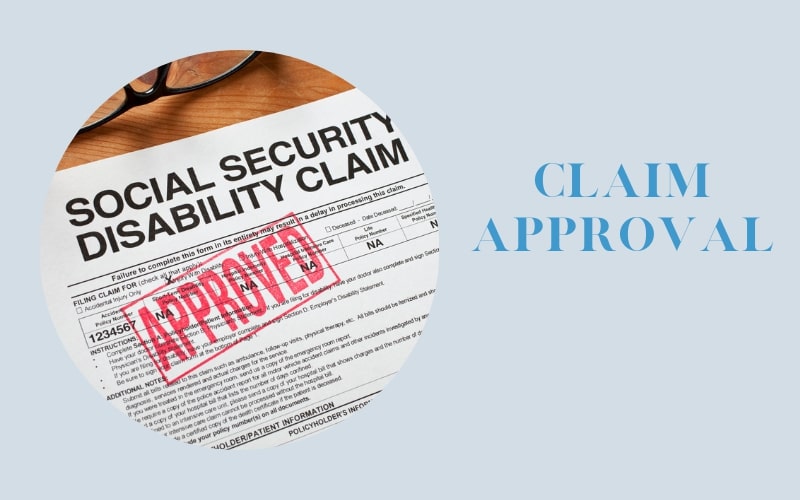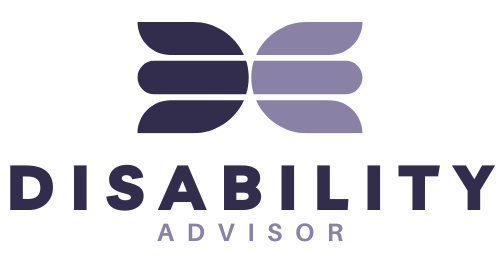If your depression and anxiety symptoms are severe enough to be classified as debilitating, you might be eligible for Social Security Disability Insurance (SSDI). This article will guide you through the process of proving your eligibility and the steps necessary to successfully claim your case.
Securing a successful disability claim based on depression or anxiety can be challenging unless you can demonstrate that your symptoms significantly disrupt your work and personal life.
Evidence such as medical treatment records from recognized medical institutions, a history of treatment for your symptoms, and a work record demonstrating disruption due to your condition can be helpful. We discuss several strategies to bolster your claim below.
Impacts of Depression and Anxiety

Depression and anxiety are formidable ailments that can dramatically transform your life. Although treatments exist, they often involve extensive, drawn-out plans that might not always yield complete success. The strain of coping with these health issues can be burdensome, exacerbated further by financial strains due to missed work or medical expenses. However, financial relief could be available in the form of Social Security Disability payments.
In the United States, depression is the leading non-fatal medical condition causing disability. According to the World Health Organization, depression tops the list as the leading cause of disability globally, affecting over 300 million people.
Typical symptoms of depression include significant feelings of sadness, guilt, inadequacy, dejection, and despondency. Other symptoms such as insomnia, restlessness, reduced sexual desire, lack of energy, and loss of appetite often accompany this condition.
Anxiety, another prevalent emotional disorder, can manifest as a sense of impending doom, obsessive thoughts, fear, or panic. Symptoms might also include uncontrollable sweating, nausea, increased heart rate, or trembling.
Origins
The root causes of depression are not definitively understood, but it’s suspected that genetic factors or other biological reasons may play a part. It’s not uncommon to see depression or anxiety run in families.
Life changes such as divorce, bereavement, or job transitions can trigger depression, but these episodes typically resolve within a relatively short period. However, if such severe moods persist daily for two weeks or more, it might indicate major clinical depression and medical consultation is advisable.
Anxiety can appear without any identifiable trigger. If left untreated, the sufferer may become housebound due to fear of provoking an episode. Both these conditions may hinder your ability to perform regular work tasks, daily family responsibilities, or normal life functions.
Categories of Anxiety Disorders
There are five officially recognized types of anxiety disorders.
- Panic Disorder: Unprovoked sensations of panic or terror lasting ten minutes or less, occurring on average once per week for a successful SSDI claim.
- Generalized Anxiety Disorder: Persistent, near-constant worry over approximately six months, unrelated to a specific event.
- Social Phobia/Anxiety: Irrational fear towards events, social settings, or objects, causing avoidance behavior.
- Post-Traumatic Stress Disorder (PTSD): Stressful reactions lasting more than a month following the witnessing or involvement in a traumatic situation.
- Obsessive-Compulsive Disorder (OCD): Compulsive repetition of a task or behavior due to intrusive thoughts and feelings. Severe distress is a prerequisite for an SSDI claim.
Claiming Social Security Disability
Depression and anxiety can be tough to validate due to the absence of a definitive lab test, rendering the process subjective. Experts often rely on a patient’s verbal expression of their feelings, but there are methods to make your claim more robust.
The Social Security Administration (SSA) is primarily interested in how your depression or anxiety impairs your work capabilities. To qualify for benefits, your conditions must prevent you from participating in Substantial Gainful Activity (SGA) for a continuous period of twelve months. Alternatively, eligibility may be determined if your health conditions are expected to stop you from reaching the SGA for twelve consecutive months.
SGA, as defined by the SSA, refers to mental or physical impairments (or both) that inhibit your ability to perform the functional requirements of SGA.
Navigating Your Claim Path

The Social Security Administration (SSA) employs two techniques to determine the validity of your disability claim. The first involves a quick reference guide, known as the Blue Book, listing various serious medical conditions and associated impairments. This handbook helps the Disability Examiner determine if your claim for depression or anxiety fulfills the necessary criteria.
If you’re using this method, you should exhibit at least four of the following symptoms:
- Decreased energy
- Altered appetite, either reduced or increased
- Apathy towards general activities
- Difficulty in maintaining focus or clear thinking
- Suicidal ideation
- A decrease in physical activity
- Fatigue
- Guilt or feelings of worthlessness
- Hallucinations, paranoia, or delusions
Alongside these symptoms, the claimant must demonstrate a lack of social engagement, concentration issues, and enduring periods where symptoms intensify, plus difficulties with daily life tasks (ADL).
Acquiring a Medical-Vocational Allowance

The second technique for approving your claim involves obtaining a Medical-Vocational Allowance.
The initial assessment for a new claim using this method examines the current income level for the claimant’s substantial gainful activity (SGA). The SSA adjusts this figure annually. For instance, in 2017, it was set at a gross earned income of $1,170 per month, and for visually impaired individuals, $1,950. These figures also account for self-employment income. If you earn equal to or more than this amount, filing a claim may be fruitless. The local office will likely reject your claim instantly, termed a technical denial, without assigning a Disability Examiner.
However, if your health conditions deteriorate and your earnings fall below these thresholds, you should consider filing a claim.
Your claim would then progress to a state-level disability agency, often called Disability Determination Services. Here, a Disability Examiner, a specialist assigned to your case, will evaluate your claim.
Importance of Medical Records

The Disability Examiner will scrutinize your file, collecting pertinent medical records submitted during your initial interview. For claims citing depression or anxiety, records from accredited or licensed mental health professionals, such as psychiatrists, psychologists, mental health clinics, or hospitals, are preferred.
Ensure your doctor’s report details the impact of your symptoms on your daily life and the efficacy of your treatment. If you opted not to take prescribed medication, the SSA may count this against you. However, an inability to afford the medication could serve as an acceptable excuse.
In cases where your current healthcare providers are licensed therapists or social workers, be aware that the SSA may not hold their opinions in as high regard as those of certified psychiatrists or psychologists. During the review of your claim, continue your regular consultations and treatments to supplement your medical records.
Issues with alcohol or drugs can derail your claim. The Disability Examiner might conclude that your depression or anxiety is entirely due to substance addiction. Nevertheless, a statement from your doctor asserting the addiction is unrelated to your mental health, and evidence of periods of sobriety despite depression or anxiety symptoms, can strengthen your case.
Even in the absence of such records, it’s still possible to submit a claim and get it approved. The Disability Examiner may arrange a one-time consultation with a SSA-approved doctor. However, this method is less likely to yield a favorable result for your claim. This is because the doctor’s single meeting with you may not accurately capture how your condition limits your work capabilities.
To avoid relying solely on the examiner-ordered exam, your best chance at a successful claim involves comprehensive documentation of examinations, consultations, medications, and a complete medical history of your condition, along with work records illustrating how your condition has affected your work activities.
Criteria for Claim Approval

For the SSA to approve a claim for depression or anxiety, you must meet three criteria.
- Even small changes in routine or slight increases in mental demands render you incapable of functioning in a work setting.
- This non-functioning situation is prolonged.
- Despite living in a supportive environment, you cannot function normally, and there’s no indication of improvement.
Step-by-Step Medical-Vocational Approval
- You must earn less than the SGA level.
- Your condition must be diagnosable medically.
- If diagnosable, is your condition severe (e.g., not a sprained ankle)?
- Your condition must have persisted for at least two years.
- The SSA will assess your employment history to determine if you could return to any jobs you held in the past 15 years.
- If not, the SSA will explore other potential job roles suited to your age, work history, education, skills, and current physical and mental capacities.
- If the answer to the final question is no, then you might qualify for Medical-Vocational Approval, the most common type of approval for such cases.
The actual evaluation of your claim depends on its stage in the process. Either Disability Examiners or judges at a disability hearing will perform the evaluation.
FAQs
Can I work while receiving SSDI benefits for depression or anxiety?
Yes, the SSA offers work incentives allowing people to work while receiving benefits. However, the amount you earn can affect your benefit amount, and if your earnings are too high, you may lose your benefits.
How is the amount of SSDI benefits calculated?
The amount of your monthly SSDI benefits is based on your average lifetime earnings before your disability began. It’s not based on the severity of your disability or your current income.
Can children with depression or anxiety qualify for SSDI?
SSDI is generally for adults who have worked and then become disabled. However, a child with severe depression or anxiety might qualify for Supplemental Security Income (SSI) if they meet the criteria for a disability and if the parent’s income and assets fall within the eligibility limits.
How long do SSDI benefits last?
SSDI benefits generally continue as long as you’re unable to work due to your disability. The SSA will periodically review your case to determine if your condition has improved. If you’re able to return to work, your benefits may be discontinued.
Can I receive SSDI if I’m also receiving other disability benefits?
It depends. Receiving other government-regulated disability benefits, like workers’ compensation, can reduce your SSDI benefits. However, benefits from private insurance or pensions do not typically affect SSDI.
Do I need a lawyer to apply for SSDI benefits for depression or anxiety?
While a lawyer is not required, having one may improve your chances of approval. Lawyers who specialize in SSDI claims understand the process and the level of evidence needed. They can help you gather the necessary information and navigate the appeals process, if necessary.
Conclusion
If your benefits are approved, a Continuing Disability Review (CDR) may be conducted in the future to assess the need for continued payments.
If your claim is ultimately denied, it’s recommended to seek advice from an attorney specializing in depression and anxiety disability claims. They can provide professional insight into whether an appeal might be worthwhile.







